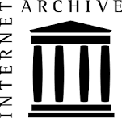Reviewing the Literature of The Associations among Knowledge Management, Knowledge Management Infrastructure, and Job Satisfaction
DOI:
https://doi.org/10.25255/jss.2019.7.1.1.15Parole chiave:
knowledge management infrastructure, job satisfactionAbstract
Knowledge, its effective use, and the acquisition of new knowledge are considered the only way organizations can sustain a competitive advantage in today’s highly competitive environment. This paper reviews the associations among knowledge management, knowledge management infrastructure, and job satisfaction.
Downloads
Riferimenti bibliografici
Abu Raddaha, A. H., Alasad, J., Albikawi, Z. F., Batarseh, K. S., Realat, E. A., Saleh, A. A., & Froelicher, E. S. (2012). Jordanian Nurses’ Job Satisfaction and Intention to Quit. Leadership in Health Services, 25 (3), pp. 1751-1879.
Ahmadi, A. A., Momeni, M., & Ahmadi, F. (2013). Required Infrastructures for Implementation of Knowledge Management System in the Masjed Soleyman Oil and Gas Production Company. Journal of Contemporary Research in Busines, 5 (2), pp. 60-72.
Albaz, M. F. M. (2014). The Impact of Information Technology and Organizational Structure on Job Satisfaction among Academic Staff at Al-Azhar University in Palestine. Unpublished Masters Thesis, Universiti Utara Malaysia.
Al-Dmour, R., Al Haj Dawood, E., Al-Dmour, H., & Masa’deh, R. (2019). The Effect of Customer Lifestyle Patterns on the Use of Mobile Banking Applications in Jordan. Int. J. Electronic Marketing and Retailing, Forthcoming.
Aldmour, R., Masa'deh, R., & Obeidat, B. (2017). Factors Influencing the Adoption and Implementation of HRIS Applications: Are they Similar. International Journal of Business Innovation and Research, 14(2), 139-167.
Al-Dmour, R, Obeidat, B., & Almajali, D. (2015). The Practice of HRIS Applications in Business Organizations in Jordan: An Empirical Study. 4th Scientific & Research Conference on New Trends in Business, Management and Social Sciences (COES&RJ-TK15/1).
Alenezi, H., Tarhini, A., Alalwan, A., & Al-Qirim, N. (2017). Factors Affecting the Adoption of E-Government in Kuwait: A Qualitative Study. Electronic Journal of e-Government, 15(2), 84-102.
Alkandari, A., Masa'deh, R., & Al-Lozi, M. (2017). Knowledge Management and its Role on Organizational Crisis Management: A Literature Review. Journal of Social Sciences (COES&RJ-JSS), 6(4), 833-850.
AL-Lozi, M. (2002). Total Quality Management in the Civil Service Institutions in Jordan. Mu'tah: Humanities and Social Sciences Series, 18(4), 151-185.
AlHarrasi, J., & AL-Lozi, M. (2015). The Role of Innovation Management and Technological Innovation on Organizational Effectiveness. 4th Scientific & Research Conference on New Trends in Business, Management and Social Sciences (COES&RJ-TK15/1), Istanbul, Turkey.
AlHarrasi, J., & AL-Lozi, M. (2016). The Role of Innovation Management and Technological Innovation on Organizational Effectiveness: A Theoretical Model. Journal of Social Sciences (COES&RJ-JSS), 5(1), 80-95.
AlHrassi, J., Al-Lozi, M., & Irtaimeh, H. (2016). The Impact of Management Innovation and Technological Innovation on Organizational Effectiveness: An Empirical Study from Managerial Staff Perspective in Sultan Qaboos University. Journal of Social Sciences (COES&RJ-JSS), 5(3), 309-339.
Almajali, D., & Al-Dmour, R. (2016). The Role of Information Technology in Motivating Students to Accept E-Learning Adoption in Universities: A Case Study in Jordanian Universities. Journal of Business & Management (COES&RJ-JBM), 4(1), 36-46.
Almajali, D., & Maqableh, M. (2015). Assessing the Digital Divide Status of the Jordanian Telecentre. International Journal of Communications, Network and System Sciences, 8(11), 428-439.
Almajali, D., Masa'deh, R., & Al-Lozi, M. (2016). Determinants of the Actual Use of E-Learning Systems: An Empirical Study on Zarqa University in Jordan. Journal of Social Sciences (COES&RJ-JSS), 5(2), 172-200.
AL-Ma'seb, H. B., & AL-Gaoud, E. R. (2015). Job Satisfaction among Kuwaiti Social Workers. Journal of the Gulf and Arabian Peninsula Studies, 152, pp. 17-33.
AL-Syaidh, N., Al- Lozi, M., & AlHarrasi, J. (2016). Transformational Leadership and its Role on the Effectiveness of Employees’ Behavior: A Theoretical Study. Journal of Business & Management (COES&RJ-JBM), 4(1), 14-35.
AL-Syaidh, N., Masa'deh, R., & Al-Zu'bi, Z. (2014). Transformational Leadership and its Impact on the Effectiveness of Employees’ Behavior in the Public and Private Jordanian Hospitals. Jordan Journal of Business Administration, 11(1), 23-57.
Ammari, G., Alkurdi, B., Alshurideh, A., & Alrowwad, A. (2017). Investigating the Impact of Communication Satisfaction on Organizational Commitment: A Practical Approach to Increase Employees’ Loyalty. International Journal of Marketing Studies, 9(2), 113-133.
Andreassi, J. K., Lawter, L., Brockerhoff, M., & Rutigliano, P. (2012). Job Satisfaction Determinants: A Study across 48 Nations. WCOB Faculty Publications. Paper 220. Available at:http://digitalcommons.sacredheart.edu/wcob_fac/220
Attar, G. A., & Sweis, R. J. (2010). The Relationship between Information Technology Adoption and Job satisfaction in Contracting Companies in Jordan. Journal of Information Technology in Construction, 15, pp. 44-63.
Bahnase, F. (2011). Job Satisfaction for Workers from the Perspective of Social Service. Alexandria: House of Loyalty for World Publication.
Bhirud, S., Rodrigues, L., & Desai, P. (2005). Knowledge Sharing Practices in KM: A Case Study in Indian Software Subsidiary. Journal of Knowledge Management Practices.
Bilimoria, D., Perry, S. R., Liang, X., Stoller, E. P., Higgins, P., & Taylor, C. (2006). How do Female and Male Faculty Members Construct Job Satisfaction? The Roles of Perceived Institutional Leadership and Mentoring and their Mediating Processes. Journal of Technology Transfer, 31, 355.
Bollinger, A.S., & Smith, R.D. (2001). Managing Organizational Knowledge as a Strategic Asset. Journal of Knowledge Management, 5 (1), pp. 8-18.
Bounfour, A. (2003). The Management of Intangibles: The Organization’s Most Valuable Assets, Routledge, London.
Carter, N.T., & Dalal, D.K. (2010). An Ideal Point Account of the JDI Work Satisfaction Scale. Personality and Individual Differences, 49 (7), pp. 743-748.
Carvalho, R. B., & Ferreira, M. A. T. (2001). Using Information Technology to Support Knowledge Conversion Processes. Information Research, 7 (1), pp. 421-458.
Darawsheh, S., ALshaar, A., & AL-Lozi, M. (2016). The Degree of Heads of Departments at the University of Dammam to Practice Transformational Leadership style from the Point of View of the Faculty Members. Journal of Social Sciences (COES&RJ-JSS), 5(1), 56-79.
Davenport, T., Delong, D., & Beers, M. (1998, Winter). Successful Knowledge Management Projects. Sloan Management Review, 39 (2), pp. 43-57.
Demchig, B. (2015). Knowledge Management Capability Level Assessment of the Higher Education Institutions: Case Study from Mongolia. Procedia - Social and Behavioral Sciences, 174, pp. 3633-3640.
Denison, D. R., Haaland, S., & Goelzer, P. (2004). Corporate Culture and Organizational Effectiveness: Is Asia different from the Rest of the World? Organ Dyn, 33, pp. 98-109.
Dyck, B., Starke, F. A., Mischke, G. A. & Mauws, M. (2005). Learning to Build a Car: An Empirical Investigation of Oragnizational Learning. Journal of Management Studies, 42 (2), pp. 387-416.
Feizi, M., & Farid, S. (2013). Surveying the Impact of Organization Structure on Employee’s Job Satisfaction of Agricultural Bank in Ardebil Province. International Journal of Management and Social Sciences Research (IJMSSR), 2 (3), pp. 76-80.
Frappaolo, C. (2006). Knowledge Management. Souther Gate Chichester, West Sussex, England: Capstone Publishing Ltd.
Furnham, A., Petrides, K.V., Jackson, C.J., & Cotter, T. (2002). Do Personality Factors Predict Job Satisfaction? Personality and Individual Differences, 33 (8), pp. 1325-1342.
Gao, F., Li, M., & Clarke, S. (2008). Knowledge, Management, and Knowledge Management in Business Operations. Journal of Knowledge Management, 12 (2), pp. 3-17.
George, J. M., & Jones, G. R. (2008). Understanding and Managing Organizational Behavior, 5th ed., Pearson Prentice-Hall, Upper Saddle River, NJ.
Gharakhani, D., & Mousakhani, M. (2012). Knowledge Management Capabilities and SMEs' Organizational Performance. Journal of Chinese Entrepreneurship, 4 (1), pp. 35-49.
Greenberg, J., & Baron, R.A. (2003). Behavior in Organizations: Understanding and Managing the Human Side of Work, 18th ed., Prentice-Hall, New Jersey.
Griffin, R., & Moorhead, G. (2007). Organizational Behavior: Managing People and Organizations, 18th ed., Houghton Mifflin Company, Boston, MA.
Horwitch, M., & Armacost, R. (2002). Helping Knowledge Management be All it Can be. Journal of Business Strategy, 23 (3), pp. 26-32.
Kanaan, R., Masa’deh, R., & Gharaibeh, A. (2013). The Impact of Knowledge Sharing Enablers on Knowledge Sharing Capability: An Empirical Study on Jordanian Telecommunication Firms. European Scientific Journal, 9 (22), pp. 237-258.
Karajeh, H., & Maqableh, M. (2014). Security of Cloud Computing Environment. The 23rd IBIMA Conference on Vision 2020: Sustainable Growth, Economic Development, and Global Competitiveness, USA, 2202-2215.
Kateb, M., Swies, R., Obeidat, B., & Maqableh, M. (2015). An Investigation on the Critical Factors of Information System Implementation in Jordanian Information Technology Companies. European Journal of Business and Management, 7(36), 11-28.
Khalayleh, W., Masa'deh, R., & Al-Lozi, M. (2017). Administrative Empowerment and its Role on the Work Teams Performance: A Literature Review. Journal of Social Sciences (COES&RJ-JSS), 6(4), 851-868.
Khalilzadeh, J., Del Chiappa, G., Jafari, J., & Borujeni, H. Z. (2013). Methodological Approaches to Job Satisfaction Measurement in Hospitality Firms. International Journal of Contemporary Hospitality Management, 25 (6), pp. 865-882.
Khwaldeh, S., Al-Hadid, I., Masa'deh, R., & Alrowwad, A. (2017). The Association between E-Services Web Portals Information Quality and ICT Competence in the Jordanian Universities. Asian Social Science, 13(3), 156-169.
Kushwaha, P., & Rao, M.K. (2015). Integrative Role of KM Infrastructure and KM Strategy to Enhance Individual Competence: Conceptualizing Knowledge Process Enablement. VINE, 45 (3).
Lee, H. & Choi, B. (2003). Knowledge Management Enablers, Processes, and Organizational Performance: An Integrative View and Empirical Examination. Journal of Management information Systems. 20 (1), pp. 179-228.
Maertensson, M. (2000). A Critical Review of Knowledge Management as a Management Tool. Journal of Knowledge Management, 4 (3), pp. 204-216.
Maqableh, M., & Karajeh, H. (2014). Job Scheduling for Cloud Computing using Neural Networks. Communications and Network, 6(3), 191-200.
Maqableh, M., Rajab, L., Quteshat, W., Khatib, T., & Karajeh, H. (2015). The Impact of Social Media Networks Websites Usage on Students’ Academic Performance. Communications and Network, 7(4), 159-171.
Masa’deh, R. (2016). The Role of Knowledge Management Infrastructure in Enhancing Job Satisfaction at Aqaba Five Star Hotels in Jordan. Communications and Network, 8(4), 219-240.
Masa’deh, R., Alrowwad, A., Alkhalafat, F., Obeidat, B., & Abualoush, S. (2018). The Role of Corporate Social Responsibility in Enhancing Firm Performance from the Perspective of IT Employees in Jordanian Banking Sector: The Mediating Effect of Transformational Leadership. Modern Applied Science, 12(7), 1-26.
Masa’deh, R., Gharaibeh, A., Maqableh, M., & Karajeh, H. (2013a). An Empirical Study of Antecedents and Outcomes of Knowledge Sharing Capability in Jordanian Telecommunication Firms: A Structural Equation Modeling Approach. Life Science Journal, 10(4), 2284-2296.
Masa’deh, R., Hunaiti, Z., & Bani Yaseen, A. (2008). An Integrative Model Linking IT-Business Strategic Alignment and Firm Performance: The Mediating Role of Pursuing Innovation and Knowledge Management Strategies. Communications of the International Business Information Management Association (IBIMA) Journal.
Masa’deh, R., Obeidat, B., Al-Dmour, R., & Tarhini, A. (2015a). Knowledge Management Strategies as Intermediary Variables between IT-Business Strategic Alignment and Firm Performance. European Scientific Journal, 11(7), pp. 344-368.
Masa’deh, R., Obeidat, B., Zyod, D., & Gharaibeh, A. (2015b). The Associations among Transformational Leadership, Transactional Leadership, Knowledge Sharing, Job Performance, and Firm Performance: A Theoretical Model. Journal of Social Sciences (COES&RJ-JSS), 4(2), 848-866.
Masa’deh, R., Shannak, R., & Maqableh, M. (2013b). A Structural Equation Modeling Approach for Determining Antecedents and Outcomes of Students’ Attitude toward Mobile Commerce Adoption. Life Science Journal, 10(4), 2321-2333.
Masa’deh, R., Tarhini, A., Al-Dmour, R., & Obeidat, B. (2015c). Strategic IT-Business Alignment as Managers’ Exploitative Strategies. European Scientific Journal, 11(7), pp. 437-457.
Matzler, K., & Renzl, B. (2007). Assessing Asymmetric Effects in the Formation of Employee Satisfaction. Tourism Management, 28 (4), pp. 1093-1103.
Mikkawi, B., & Al-Lozi, M. (2017). The Impact of Knowledge Management Infrastructure on Academic Staff Effectiveness: An Empirical Study at The University of Jordan. Jordan Journal of Business Administration, 13(1), 95-127.
Milam, J. (2005). Organizational Learning through Knowledge Workers and Infomediaries. New Directions for Higher Education, 131, pp. 61-73.
Navaie-Waliser, M., Lincoln, P., Karuturi, M., & Reisch, K. (2004). Increasing Job Satisfaction, Quality Care, and Coordination in Home Health. Journal of Nursing Administration, 34, pp. 88-92.
Noe, R. A. (2002). Employee Training and Development. New York, NY: McGraw-Hill Companies, Inc.
Nonaka, I., Krogh, G., & Voelpel, S. (2006). Organizational Knowledge Creation Theory: Evolutionary Paths and Future Advances. Organization Studies, 27 (8), pp. 1179-1208.
Obeidat, O., Tarhini, A., & Aqqad, N. (2017). The Impact of Intellectual Capital on Innovation via the Mediating Role of Knowledge Management: A Structural Equation Modeling Approach. International Journal of Knowledge Management Studies, 8(3/4), 273-298.
Papadopoulos, A. S. Y. (2015). School Teachers’ Job Satisfaction and Personal Characteristics. International Journal of Educational Management, 29 (1), pp. 73-97.
Pauleen, D. J., Wu, L., & Dexter, S. (2007). Exploring the Relationship between National and Organizational Culture, and Knowledge Management. In D. J. Pauleen (Ed), Cross-Cultural Perspectives on Knowledge Management. (pp. 3-19). Westport, CT: Libraries Unlimited.
Platsidou, M., & Diamantopoulou, G. (2009). Job Satisfaction of Greek University Professors: Is it affected by Demographic Factors, Academic Rank and Problem of Higher Education? In G.K. Zarifis (Eds.) Educating the Adult Educators: Quality Provision and Assessment in Europe, Conference Proceedings (pp. 535-545). ESREA-ReNAdET. Thessaloniki: Grafima Publications.
Quinn, R.P., & Mangione, T.W. (1973). Evaluating Weighted Models of Measuring Job Satisfaction: A Cinderella Story. Organizational Behavior and Human Performance, 10 (1), pp. 1-23.
Rechberg, I. D. W., & Syed, J. (2014). Appropriation or Participation of the Individual in Knowledge Management. Management Decision, 52 (3), pp. 426-445.
Sandhawalia, B. S., & Dalcher, D. (2011). Developing Knowledge Management Capabilities: A Structured Approach. Journal of Knowledge Management,15 (2), pp. 313-328.
Scarpello, V., & Campbell, J.P. (1983). Job Satisfaction: Are all the Parts There? Personnel Psychology, 36 (3), pp. 577-600.
Scheirmerhorn, J., Hunt, J., & Osborn, R. (2005). Organizational Behavior, 9th ed., John Wiley, New York, NY.
Schiuma,G.,Ordonez De Pablos, P., & Spender, J.C. (2007). Intellectual Capital and Company’s Value Creation Dynamics. International Journal of Learning and Intellectual Capital, 4 (4), pp. 331-341.
Schneider, B., & Dachler, H.P. (1978). A Note on the Stability of the Job Descriptive Index. Journal of Applied Psychology, 63 (5), pp. 650-653.
Shannak, R., Masa’deh, R., & Akour, M. (2012). Knowledge Management Strategy Building: Literature Review. European Scientific Journal, 8 (15), pp. 143-168.
Singh, S. K. (2008). Role of Leadership in Knowledge Management: A Study. Journal of Knowledge Management, 12 (4), pp. 3-15.
Smith, T. A. (2006). Knowledge Management and its Capabilities Linked to the Business Strategy for Organizational Effectiveness. Unpublished PhD Dissertation, Nova Southeastern University.
Spector, P.E. (1997). Job Satisfaction: Application, Assessment, Causes, and Consequences. United Kingdom: Sage Publications Ltd.
Tarhini, A., Alalwan, A., Al-Qirim, N., & Algharabat, R. (2018). An Analysis of the Factors Influencing the Adoption of Online Shopping. International Journal of Technology Diffusion (IJTD), 9(3), 68-87.
Tarhini, A., Al-Badi, A., Almajali, M., & Alrabayaah, S. (2017a). Factors Influencing Employees’ Intention to Use Cloud Computing. Journal of Management and Strategy, 8(2), 47.
Tarhini, A., Al-Busaidi, K., Bany Mohammed, A., & Maqableh, M. (2017b). Factors Influencing Students' Adoption of E-Learning: A Structural Equation Modeling Approach. Journal of International Education in Business, 10(2), 164-182.
Tarhini, A., Bany Mohammed, A., & Maqableh, M. (2016). Modeling Factors Affecting Student’s Usage Behaviour of E-Learning Systems in Lebanon. International Journal of Business and Management, 11(2), 299.
Tarhini, A., Mgbemena, C., & Trab, MSA. (2015). User Adoption of Online Banking in Nigeria: A Qualitative Study. Journal of Internet Banking and Commerce, 20(3), 1-8.
Yap, L. S., Rosmaini, T., Muhamad, S. C. R., & Norazlin, H. (2010). Factors Influencing Knowledge Management Practices among Multimedia Super Corridor (MSC) Organizations. Available at: http://www.ibimapublishing.com/journals/CIBIMA/cibima.html
Yassien, E., & Mufleh, M. (2017). The Impact of ERP System's Usability on Enterprise Resource Planning Project Implementation Success via the Mediating Role of User Satisfaction. Journal of Management Research, 9(3), 49-71.







 a Creative Commons Attribution 4.0 International License.
a Creative Commons Attribution 4.0 International License.